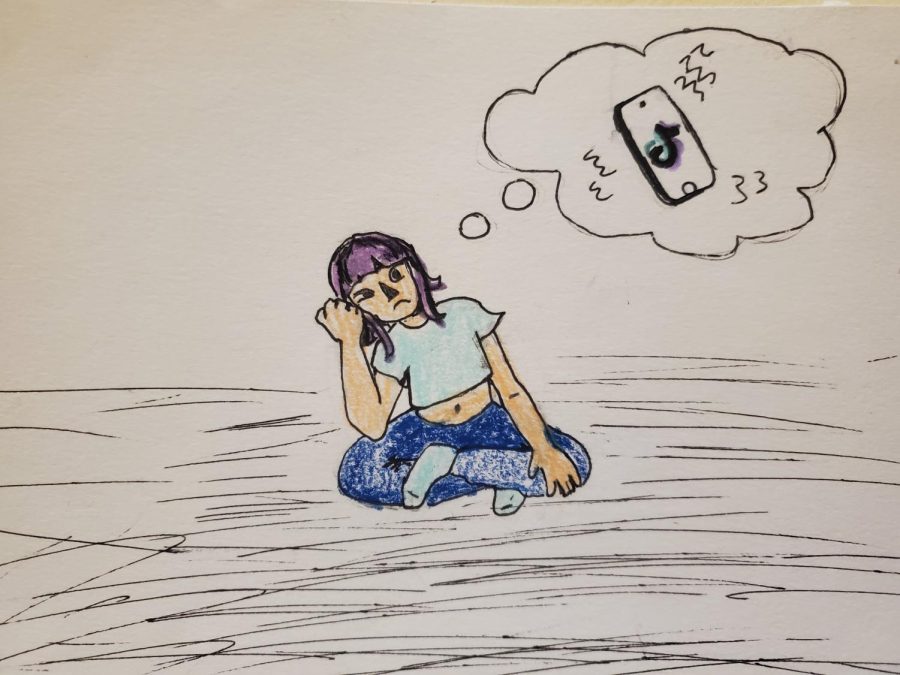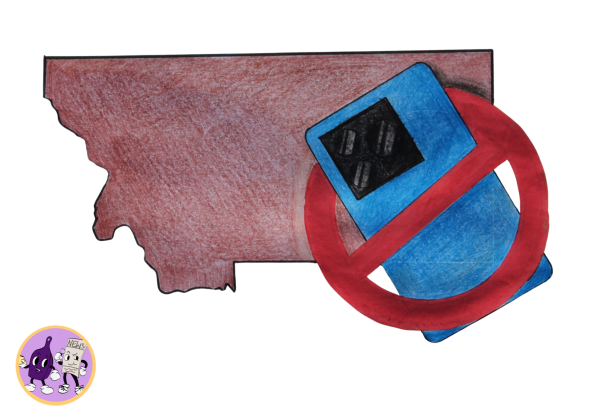THE MOVE TO REMOVE TIKTOK
The proposal to ban TikTok off of all American phones makes headlines on social media.
A drawing of a girl sitting on the ground as she thinks about TikTok.
In the beginning of March of this year, the United States Senate proposed a bill to restrict TikTok access on all phones within the United States. Known as the “RESTRICT Act”, it would “authorize the Secretary of Commerce to review and prohibit certain transactions between persons in the United States and foreign adversaries” in addition to other purposes. Essentially, this means that since TikTok was created by a foreign company (a Chinese company called ByteDance), the United States Senate wants the ability to eliminate usage of the app on all phones within the country. The bill itself does not strictly state TikTok anywhere, but it does reference countries such as China, Cuba, Venezuela, North Korea, Russia, and Iraq.
Why is this happening? There are a few reasons, but the main point here is that the government wants to protect U.S. citizens from threats to national security. Predominant is the fear that the app could enable the Chinese government to surveil the American population, or that it could spread the influence of other countries through recommendations. While the company that owns it claims to not share any information, CEO Shou Zi Chew also says that some Chinese-based employees may have access to user data. Additionally, recent relations with China have also not helped the case as tensions have been high.
In short, the RESTRICT Act attempts to ensure the safety of U.S.citizens. This bill also comes just shortly after the “DATA Act”, which would allow President Joe Biden to ban TikTok if the app was found to be or suspicious of sharing sensitive user data to the Chinese government.
Before all of this began at the end of February, the White House informed all Federal Agencies that they had 30 days to remove TikTok from government-issued phones. The United States was not alone in this ruling, as other countries (like Canada) have also passed the same rule. On the 1st of March, the push to get TikTok off of all phones nationwide was finally seen.
Some lawmakers and government workers have pushed for the ban to be put into place much earlier than March; however, it is only just now gaining traction due to the fact that the bill has gone through the House Foreign Affairs Committee.
Some lawmakers and government
workers have pushed for the ban
to be put into place much earlier
than March…
The only country that has successfully banned Tiktok as of now is India, which did so mid-2020; however, many restrictions are being seen all across the world. This bill may not get passed to succession, but it is getting farther than it has in the past (previously, the House denied the attempt to ban TikTok from the Trump Administration).
TikTok has hit over 100 million users from the United States; if this bill does successfully pass, ByteDance will lose substantial profit and growth. A significant amount of users on the app are expressing their concerns for the app being removed, as it may affect profit and the ability to connect with others online. Some restrictions have already been put in place, with government phones unable to access the app anymore, and with certain places not allowing the usage of the app while connected to their WiFi.
Whether or not you use TikTok as a form of social media, this proposed ban might completely wipe the app off of the App Store, and the site that some Americans use for profits might mean hundreds or thousands of people will have to use another site to continue growing their accounts and income. While it might limit a lot of information the Chinese government has access to on the U.S. citizens, it could also have a negative impact on those who rely on it for online connections.

“They’re making us think our thoughts are what we’re thinking…I think” -Patrick Star









